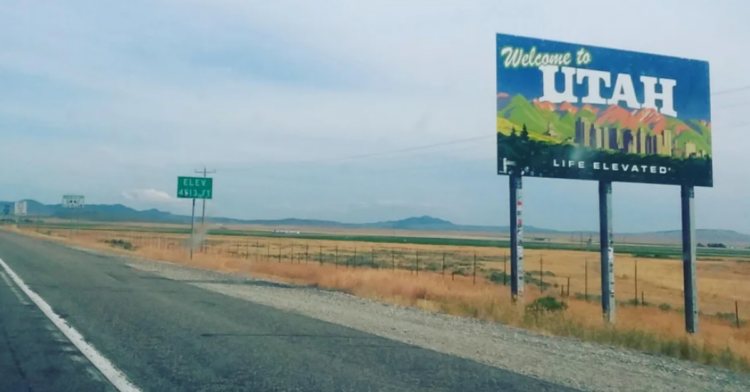As February rolls around once again, so too does the opportunity for people the world over to become better acquainted with the historical efforts and experiences of Black people that inform how the world as we know it came to be.
Yes, it is indeed Black History Month, and while each nation has its own context for what that history entails and how it has impacted the present, all would be missing out on a great deal if they attempted to leave their pages of Black history blank.
However, this appears to be what at least a few Utah parents sought to do with their children’s education and — at least for a day — they succeeded.
Within the past week, some parents with children enrolled at Maria Montessori Academy in North Ogden, Utah, requested the ability to opt out of that year’s Black History Month curriculum.

According to local newspaper The Standard Examiner , this curriculum is incorporated into the school’s standard history and social studies curricula for the duration of February and comes as part of the school’s efforts to “celebrate the achievements of African Americans and recognize their role in U.S. history.”
Yet while it’s unclear how many families sought to opt their children out of this material and why, the school’s Director, Micah Hirokawa, made a statement on the institution’s Facebook page announcing a letter allowing them to do so.
In his words, “Reluctantly, I sent out a letter to our school community explaining that families are allowed to exercise their civil rights to not participate in Black History Month at the school.”
Hirokawa made it clear in this now-deleted statement that he felt “deeply saddened and disappointed” by the fact that he received such requests at all.

As he put it, “We should not shield our children from the history of our Nation, the mistreatment of its African American citizens, and the bravery of civil rights leaders, but should educate them about it.”
As someone whose great-grandparents were among the Japanese Americans sent to internment camps during World War II, Hirokawa expressed his belief in the value of teaching children about the historic injustices faced by people of color in the interests of preventing further examples.
However, his decision to entertain the requests of these parents was apparently founded in the idea that “the right to not participate has equal power in the right to participate.”
However, it’s unclear whether Utah parents are actually legally empowered to exlcude public school children from the Black History Month curriculum.

According to The Washington Post , Utah law allows students to be exempt from lessons that infringe on either their religious beliefs or their “right to conscience,” but this apparently does not include core social studies materials that “include a focus on U.S. history, inequality and race relations.”
Nonetheless, all parents were sent a message that linked to a Google document they could fill out if they did not want their children to participate in any events or lessons related to Black History Month.
This message was immediately the subject of intense backlash both among parents and the wider community.

As The Washington Post reported, it came to the attention of Utah Jazz star player Donovan Mitchell, who tweeted out, “The fact that kids are being told by their own parents to not learn about black history and black excellence is sickening and sad.”
The school’s decision to relent to the parents who requested this was also condemned by the Ogden chapter of the NAACP and by U.S. Representative Blake D. Moore, who said, “I strongly believe we cannot learn American history without learning Black history. Imagine if we had to teach Utah history without highlighting the persecution of early members of the Church of Jesus Christ of Latter-day Saints who led the migration west.”
In response to the fallout, Maria Montessori Academy reversed its position and announced on February 6 that the Black History Month curriculum would be mandatory after all.

As The Washington Post reported, the parents who had initially requested to opt their children out met with school officials to resolve any outstanding differences and eventually decided not to pursue their objections further.
While this was the desired result for most who were watching this story, representatives from the Ogden NAACP highlighted some concerning implications in the fact that such objections were entertained in the first place.
As they said, “Given the current tumultuous state of race relations in our country, it is now more vital than ever that children are given ample opportunities to learn the authentic history of our nation, not sanitized, ‘feel good’ versions.”
















































